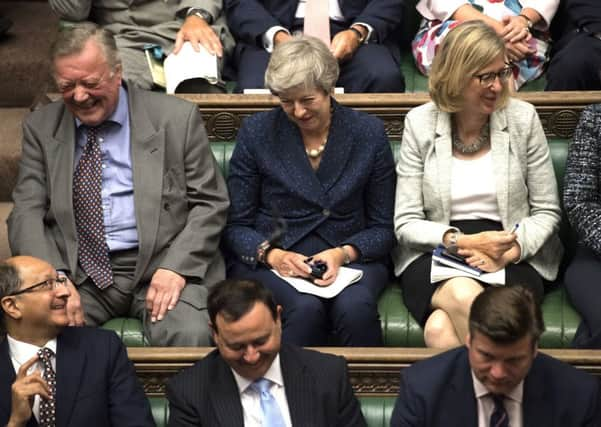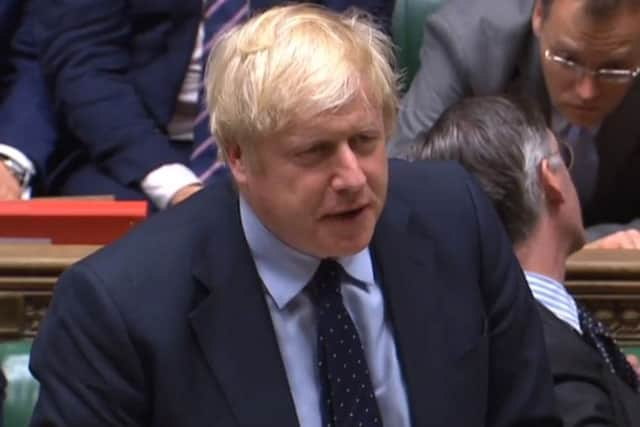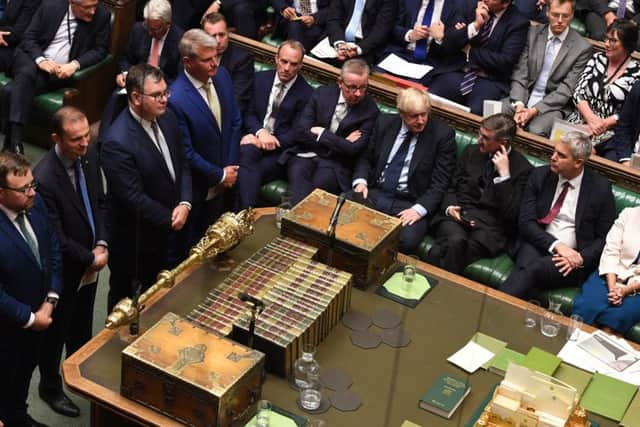Why suspension of Parliament sets dangerous precedent for democracy – Ken Clarke


This horrendous debate which is tearing the country apart is doing great harm to our political institutions, and particularly Parliament. A large number of the population on either side of the European debate are beginning to hold Parliament almost in contempt.
Advertisement
Hide AdAdvertisement
Hide AdFanatic Leavers are convinced that it is wicked MPs who are undermining the people’s will and that we are solely responsible for the appalling deadlock we are in.


I am very glad that we have found a way of enabling Parliament to assert itself, give its view and face the fundamental challenge from a constitutional point of view which will determine the political relationship between Governments of all colours and Parliaments for quite a long time to come.
Advertisement
Hide AdAdvertisement
Hide AdParliament has twice voted against leaving with ‘‘no deal’’. This Prime Minister has plainly determined that he has put himself in a position where he has got to have ‘‘no deal’’. We have seen the most extraordinary attempts to avoid this House having opportunities to vote on that, to debate it and to play a role in it.


If Parliament allows itself to be sidelined, the precedent that we will create for future generations, and for the behaviour of future Governments of all complexions vis-à-vis Parliament, will be quite horrendous.
Prorogation was the final, almost charmingly naive, attempt to make sure that there was not even an opportunity by mistake for something on the Order Paper to enable anybody here to express their opinion.
Apparently, it is suddenly frightfully important that the Government’s whole new policy package — which seems to be emerging at an extraordinary rate, in figures anyway — is put before Parliament before the end of October, when we have not really bothered with policy of that kind for a very long time. It is plainly impossible to put it off until the beginning of November.
Advertisement
Hide AdAdvertisement
Hide AdMost importantly, apparently the reason for the extremely long break is that it is extremely important that we do not distract the public from paying proper attention to the party conferences.
We have to be respectful to the Trades Union Congress; we cannot distract the television sets of the nation from the Liberal assembly; apparently every Conservative MP is dying to go to the Conservative conference. We know there are people who will have engagements there, but I am sure the pairing system can cope with that.
The idea that at the moment of such historic crisis, such momentous decisions, the House can be faced with arguments of that kind, I find quite preposterous and very saddening.
Given that we are being treated in this way, it is quite obvious that the House must seize its own agenda and make the most of the opportunity in the next few days.
Advertisement
Hide AdAdvertisement
Hide AdThen the House can make key decisions on what it will legally require the Government to pursue in the national interest: most importantly being strongly against just leaving with no deal. I would be amazed if a majority does not emerge, yet again. It is not that anybody really wants that — I think about 20 members of the House of Commons really think it is a good idea to leave with ‘‘no deal’’.
It is the right (wing) of my party, who have given up and decided to get it over with “Leave with no deal; it’s all the fault of the Germans, the French and particularly the Commissioners — all the fault of Parliament. Have a quick election, wave a Union Jack and then we will sort out the bumps that will come when we have left”. The House must stop that, and use the opportunity.
But there is one point of real substance that I would like to address. The Leader of the House (Jacob Rees-Mogg) was using what is currently the cliché, extreme right-winger argument, that anybody who wants to stop a no-deal Brexit is actually reversing the referendum.
I think we exactly reflect the public; Parliament, in its paralysed confusion, entirely reflects the division of the public, where there is no clear majority for anything, so far, except that we are against leaving with no deal.
Advertisement
Hide AdAdvertisement
Hide AdWe cannot get a majority for anything else; everything else has so far been blocked by hard-line right-wing people who do not want any deal with foreigners, and People’s Vote people, who will not vote for anything that involves leaving the European Union because they want another referendum. I am afraid they have, so far, outnumbered the middle.
I think more of them should join the middle, because I believe, with great reluctance, that the obvious compromise, to bring together both public opinion and this House, is a soft Brexit where we keep the present economic ties.
Kenneth Clarke is a former Chancellor and Conservative MP. The Father of the Commons, he spoke in the emergency debate on Brexit – this is an edited version.